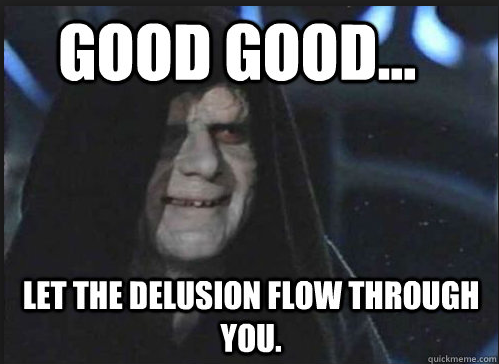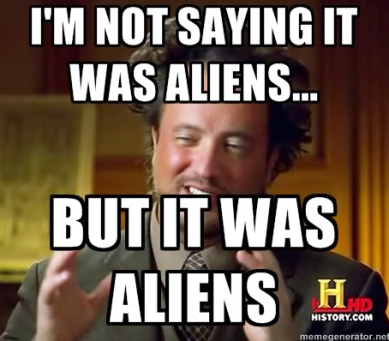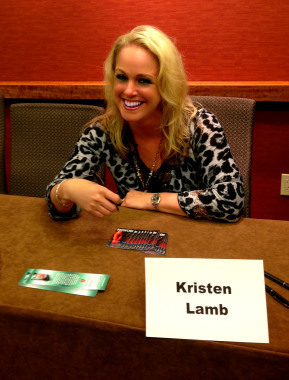Marketing, Social Media & Book Signings—Why NONE of These Directly Impact Book Sales
In The Digital Age, we seem to find a lot of extremes. Either articles or blogs ranting how social media doesn’t sell books, it’s too hard, there are too many rules,��whiiiiiiinnnnne. These folks might write books, maybe��even great books, but I suppose they think readers will find them using telepathy.��
Or, there are those who worship the Oracle of Automation and the Lord of Algorithms. Instead of writing MORE BOOKS, they tweet, FB, Instagram, buy flare, do blog tours, futz with the website, the cover, the algorithms…and then can later be witnessed crying in a corner with a pan of brownies and a half-finished bottle of rum.
Thus, I am here to bring some balance to The Force.
Social Media Was NEVER About Selling Books Directly—Who KNEW?
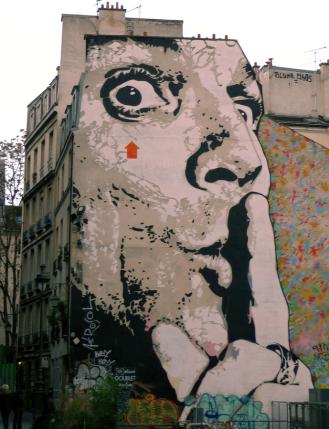
Image via Flikr Creative Commons courtesy of Zoetnet.
I’ve been saying this for about ten years, because the idea of using social circles for sales is NOT new. About ten years ago, I recognized that social media would soon be a vital tool for writers to be able to create a brand and a platform before the book was even finished. This would shift the power away from sole control of Big Publishing and give writers more freedom. But, I knew social media could not be used for direct sales successfully.
How?
When I was in college, every multi-level-marketing company in the known world tried to recruit me. I delivered papers and worked nights most of my college career. Needless to say, I was always on the lookout for a more flexible job that didn’t require lugging fifty pounds of paper up and down three flights of apartment stairs at four in the morning.
I’d answer Want Ads in the paper thinking I was being interviewed for a good-paying job where I could make my own hours.��Inevitably it would be some MLM company selling water filters, diet pills, vitamins, prepaid legal services, or soap.
And if I sat through the presentation, they fed me. This meant I sat through most of them.
What always creeped me out was how these types of companies did business. First, “target” family and friends to buy said product (and hopefully either sign them up to sell with you or at least “spread the word” and give business referrals). Hmmmm. Sound familiar?
The business model wasn’t really about meeting people, connecting and actually liking them just because they were good people. There was an endgame���SELL STUFF (or manipulate others into helping you sell stuff).
Ick.
Hey, you go to the gym anyway. Strike up a conversation. Say��nice things, then give the sucker friend��target a FREE SAMPLE. People who work out need vitamins. That isn’t ookey AT ALL!

Hmmm, looks legit.
The Battle of the Experts
I recall being part of a panel in NYC at Thrillerfest and the other experts were all excited about applications that could tweet for authors “saving time” or even certain tools that could measure what days and times Twitter was most active and when people would be most likely to see our tweets. All I could think was:
1) Are these people tweeting or ovulating?
2) If everyone uses this same tool, then all they will do is crowd the feed and no one will see anything. Left long enough, these “Golden Hours” will shift so people can avoid the barrage of ME, ME, ME! MY BOOK!
The panel’s moderator (ironically) worked for the CIA and was tickled silly that there were all kinds of algorithms that could “predict human behaviors.” Of course, I made myself WAY popular when I said, “The only way to accurately predict human behavior is if we all have a chip in our heads and someone else has a joystick.”
Yes, I can be blunt. My mom is from New York. I blame it on her.
My assertion was that, if this was true, and we could accurately predict human behavior, then we wouldn’t be worrying about crime, war or terrorism and that these algorithms were a mirage that gave a false sense of us “being in control” of the uncontrollable.
Also, how would she still have a job at the CIA?
Oooh, But We Can��MEASURE���um, NO
In the 90s and early 21st century most people weren’t on-line. Computers were still cost-prohibitive and Internet service was mind-bendingly slow (dial-up?) and expensive. Social media was in its infancy and only early adopters trusted buying on-line.
Companies could launch ads and measure click-throughs. How long did a visitor stay on a web site’s page? Did the visitor click the ad on the page? Did that ad then translate into a sale? Companies still do this. I’m pretty sure authors can do this, but why would we want to?

Meet Spiffy the Algorithm Hamster. He is DEAD.
Unlike Sephora, Gap or Walmart, most of us are a one-person operation. We don’t have a team of interns to do this stuff. We also don’t have a multi-million dollar corporate budget.
What IF an ad doesn’t work? How many of us have time and extra money to launch a new ad?
Also, there are SO many variables beyond our control. I’ve seen this with blogging. A holiday, time of year (kids getting out of school), a major world news event (like Paris being attacked by terrorist cells) can all affect traffic and click-throughs. To try and study our stats and juke them for advantage is a lot of time better used elsewhere (like writing more books).
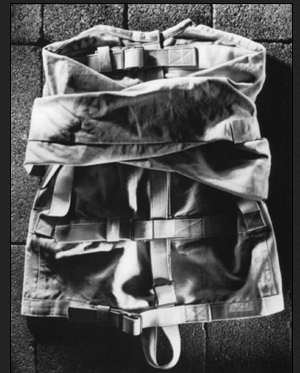
Might I suggest one of these…
Relationships are Key
Social media is social, meaning it’s about��relationships.��This means, 1) it will take��time to build��and 2) it cannot be outsourced 3) it cannot be automated.
Can you imagine trying to maintain relationships this way in the real world? Give your husband a call-in number:
For the location of clean socks, press 1. For a word of encouragement, press 2. For the item I need you to pick up from the store, press 3. For the real reason I haven’t talked to you since yesterday, please stay on the line and an operator will be with you shortly.
Your estimated call wait time is three days.
HINT: Anniversary.
Social media and author brands��will sell books, just not directly and not in ways that can be measured looking at clicks and stats. Social media is essentially��word-of-mouth which has been selling stuff books for centuries and no one can measure it.��
The Bottom Line
Since I don’t have all the articles and blogs griping about social media, I am limited here. But I imagine that, aside from telling writers social media was a waste of time that doesn’t sell books, I assume not one of these complainers offered up some panacea replace social media.
See, it is a hell of a lot easier to complain than to offer a solution. Griping takes ZERO brainpower.
So, if social media doesn’t sell books, then what does? Ads don’t. Never have. Promotions (without an extant and vested platform) are time-consuming, expensive and have a dismal ROI (Return on Investment).
Also, if social media is so grossly ineffective, what explanation do we have for the MASSIVE power shift from BIG NYC publishing to indie and self-published authors now 1) making a reasonable second income 2) making a decent enough living to finally write full-time 3) nontraditional authors taking up an increasing portion of major bestseller lists like the��New York Times��and��USA Today��and 4) the major inflation of��fiction writers now��making six and seven figures?
All the ones I know of (and there are MANY)��use social media to some extent. All of these authors would never have gained visibility, traction or sales without social media.How can we explain these trends without including social media as a variable?
Notice I said social media as a variable.��There is NO magic formula. Hard work, more books, good books and generating word of mouth (in part with a brand and on-line platform) is fundamental. Social media has been mistakenly touted as a formula to wealth and riches, but it isn’t. Neither is buying real estate using a proven program from an infomercial.
The Future
Bookstores are closing. Barnes & Noble is evaporating. Indie stores are making a comeback, but they have limited space (and need to unless they want to go bankrupt like the megastores that tried to KILL them). THIS is the future of book sales. THIS is in the cosmetics section of my grocery store. Insert a debit card and get a sample before you buy…

Why buy a WHOLE tube of lipstick when you can get a sample. Also, um LOSS prevention?
Oh, and these are popping up…
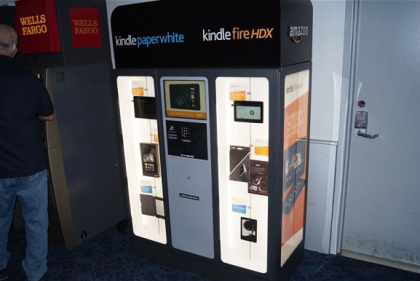
Check your bank balance then BUY A BOOK!
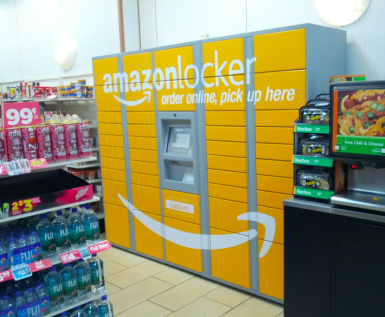
For those who want a paper copy to hold���and get NACHOS!
These kiosks sound familiar. Reminds me of one of my posts from over three years ago. I wrote a lot of��other blogs that said basically the same stuff, posts that are even older. But I’ve written over 800 blogs and I’m lazy and have to get back to writing books. And I am not alone in seeing this trend. I’m no great genius. Other people saw this coming.
Um, clearly since I can’t claim I invented any of these machines. Ok, I could, but I try to restrict lying to my fiction.
But, if THESE kiosks are down the pipeline, how can we reasonably come to the conclusion that social media is a total waste of time?
Relying totally on social media is a waste of time, but I’ve been saying that for years. As authors, we are wise to think in terms of our careers. Think like a business, as in short-term and��long-term.��Platforms and careers need a wide base, deep roots, a community of support, time and a heck of a lot of sweat equity.
Also, there are effective ways to do social media and ways that make others want to stab us in the face��(which was why I wrote Rise of the Machines—Human Authors in a Digital World).W.A.N.A. ways WORK. They’re responsible for selling millions of books. But they take time.
ROM has a simple step-by-step plan. Heck, don’t buy my book. Browse my blogs for free. I only care about your success.
The Future IS Bright for Writers
The future for authors is wonderful, but there is no Social Media Shake Weight. Sorry. I was bummed, too. But here’s the thing. The same articles/blogs that will discourage writers from social media because it doesn’t sell books aren’t also demanding we halt all book signings.
Book signings are fun, they are social, and they’ve historically been a way to connect authors to an audience in a personal way.
Until social media they were the only way.��
But book signings were NEVER meant as a sole means to sell books. In fact, it was really never even the purpose of a signing. Rather it was��connection with the author as a person.
Even if a writer has a line out the door, the most even a mega-author might sell is a thousand books. Let’s be generous. FIVE thousand books. A drop in the bucket if you’re Dan Brown. Is selling 5,000 books relevant when an author sells millions? When an author has to board a plane, stay in a hotel, sit in one spot signing for��hours or even come up with a speech? And travel city to city to city for a month or more instead of writing?
Food for thought ;) .
We live in a wonderful time to be a writer. Yes, it’s work, but there are a lot of reasons why this job isn’t for everyone. Success in anything is about staying power, passion, and effective action (solid social media, building relationships, and writing MORE books and GOOD books).
What are your thoughts? Are too many authors banking too much on social media? Do you feel social media has been sold to writers as a get-rich-quick-scheme? Do you see other authors approaching social media in a way you��know��is going to burn them out? Do you know of any nontraditional authors who sold zillions of books yet didn’t use social media at all? What did they do?
���ALIENS.
I LOVE hearing from you!
To prove it and show my love, for the month of JANUARY, everyone who leaves a comment I will put your name in a hat. If you comment and link back to my blog on your blog, you get your name in the hat twice. What do you win? The unvarnished truth from yours truly. I will pick a winner once a month and it will be a critique of the first 20 pages of your novel, or your query letter, or your synopsis (5 pages or less).
For those who need help building a platform and keeping it SIMPLE, pick up a copy of��my latest social media/branding book��Rise of the Machines—Human Authors in a Digital World on AMAZON, iBooks, or Nook.��


